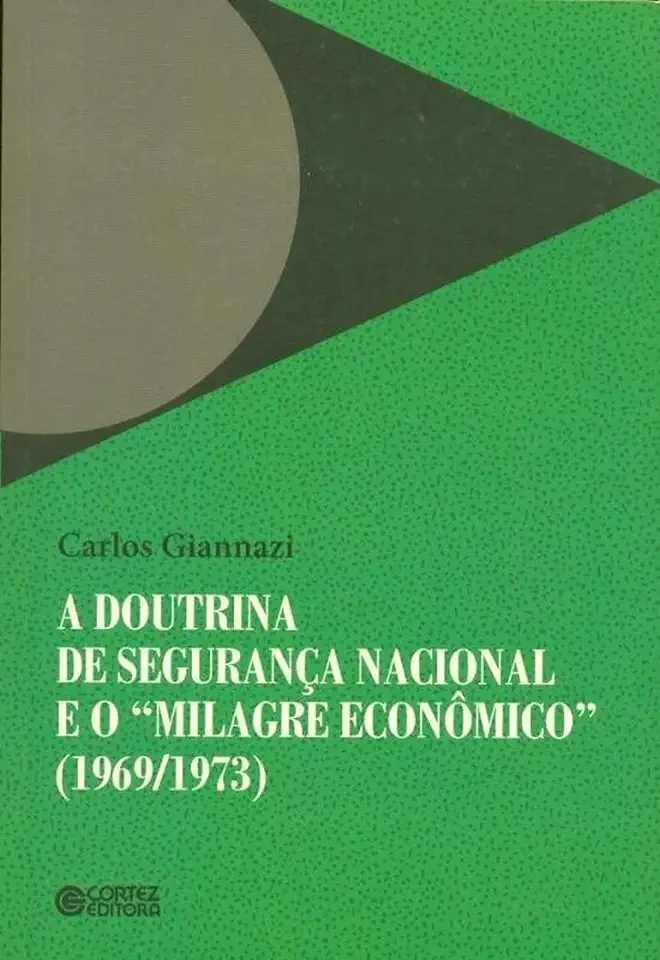
The National Security Doctrine and the Economic Miracle 1969 / 1973 - Carlos Giannazi
The National Security Doctrine and the Economic Miracle 1969 / 1973 - Carlos Giannazi
A Comprehensive Analysis of Brazil's Economic Transformation
In his groundbreaking book, "The National Security Doctrine and the Economic Miracle 1969 / 1973," Carlos Giannazi presents a compelling and meticulously researched account of Brazil's remarkable economic transformation during a critical period in its history. Giannazi offers a comprehensive analysis of the interplay between the country's national security doctrine and its economic policies, shedding light on the complex factors that contributed to Brazil's rapid economic growth during the years 1969 to 1973.
Unveiling the Interwoven Threads of Politics and Economics
Giannazi's work delves into the intricate relationship between Brazil's political and economic spheres, demonstrating how the national security doctrine, implemented by the military regime that ruled the country during that time, profoundly influenced economic decision-making. He argues that the military government's focus on national security and development led to a unique set of economic policies that fueled Brazil's economic growth.
Key Features of the National Security Doctrine
The national security doctrine, as analyzed by Giannazi, encompassed several key features that shaped Brazil's economic trajectory. These included:
State Interventionism: The military government actively intervened in the economy, playing a central role in directing investments, regulating industries, and controlling prices.
Import Substitution Industrialization (ISI): ISI was a central pillar of the economic strategy, aimed at reducing Brazil's dependence on imports and promoting domestic industries.
Foreign Capital and Technology: The government encouraged foreign investment and technology transfer to support industrialization and economic growth.
Repression of Labor Movements: Labor unions and social movements were suppressed to maintain social control and ensure a favorable environment for economic growth.
The Economic Miracle: Achievements and Controversies
Giannazi meticulously documents the impressive economic achievements of Brazil during the period under study. The country experienced rapid industrialization, increased exports, and a significant rise in its gross domestic product (GDP). However, these achievements came at a cost, as the military regime's authoritarian policies led to widespread human rights abuses and the suppression of political dissent.
A Critical Examination of the Economic Model
While acknowledging the economic progress made during this period, Giannazi also critically examines the sustainability and long-term consequences of the economic model adopted by the military government. He argues that the model's reliance on state intervention, import substitution, and foreign capital created structural weaknesses that would later hinder Brazil's economic growth.
A Must-Read for Scholars, Policymakers, and History Enthusiasts
"The National Security Doctrine and the Economic Miracle 1969 / 1973" is an essential read for scholars, policymakers, and anyone interested in understanding Brazil's economic history and the complex relationship between politics and economics. Giannazi's rigorous research and insightful analysis provide a valuable contribution to the study of Brazil's development and offer important lessons for policymakers grappling with similar challenges today.
Enjoyed the summary? Discover all the details and take your reading to the next level — [click here to view the book on Amazon!]